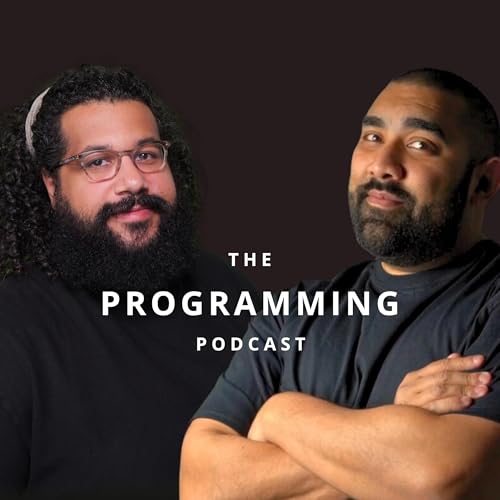49,000 developers just crowned Full-Stack the #1 software developer role of 2025. We dig into the Stack Overflow Developer Survey (2025) and turn the data into an actionable career roadmap: what to learn, what to ignore, and how AI actually fits into your workflow.
NEW SITE https://www.programmingpodcast.com/
Stay in Touch:
📧 Have ideas or questions for the show? Or are you a business that wants to talk business?
Email us at dannyandleonspodcast@gmail.com!
💡 Sponsor: Level Up Financial Planning
Changing careers or increasing your income? Get financial clarity with Level Up Financial Planning—helping early and mid-career tech professionals secure their financial future. Visit LevelUpFinancialPlanning.com for a free consultation!
https://www.levelupfinancialplanning.com/
Danny Thompson
https://x.com/DThompsonDev
https://www.linkedin.com/in/DThompsonDev
www.DThompsonDev.com
Leon Noel
https://x.com/leonnoel
https://www.linkedin.com/in/leonnoel/
https://100devs.org/
📧 Have ideas or questions for the show? Or are you a business that wants to talk business?
Email us at dannyandleonspodcast@gmail.com!
We break down:
- Why Full-Stack leads (and what skills to stack to stay hireable)
- The SQL vs NoSQL reality (Postgres on top) and how to pivot if you’re Mongo-first
- Languages & frameworks that matter in 2025 (JS/TS, React/Next, .NET/Spring)
- Tools to master: Docker (near-universal) + AWS (still the gap)
- IDE reality: VS Code dominance, Cursor surge, where JetBrains fits
- LLMs in practice: GPT usage, Claude’s rise, and smart model-routing
- Agents, “vibe coding,” and where AI saves real time (tests, data, docs)
- Pay & jobs snapshot + a blunt Q&A: CSS fundamentals vs Tailwind
Chapters
00:00 Cold open — the #1 role reveal
00:36 Why this survey still matters (and its biases)
01:55 Intros + Commit Your Code plug
03:14 Who answered: 49k respondents, pros, age, country
07:03 How devs learn in 2025: docs, AI tools, videos, bootcamps
11:07 The reveal: Full-Stack is #1
12:42 What that means for careers (front-end-only is shrinking)
14:28 Languages: JS/TS, Python, C#/Java — what to prioritize
17:29 Sponsor — Level Up Financial Planning (levelupfinancialplanning.com)
18:34 Databases: SQL dominance (Postgres first) + Mongo in context
20:27 Cloud & dev tools: Docker as default, the AWS gap
21:41 Web frameworks: React/Next, jQuery still huge, .NET & Spring
23:11 IDEs: VS Code, Cursor surge, JetBrains, Vim/Neovim
24:42 LLMs in practice: GPT vs Claude + model routing
29:00 Team tools: GitHub/Jira/Miro + new Git alternatives
30:24 OS choices: Windows vs macOS, WSL split
31:16 Admired vs used: Rust/Elixir, Supabase, reality check
37:02 AI adoption & where it helps most (search, tests, data, docs)
41:41 Accuracy, complex tasks, and human-in-the-loop
44:20 Dealing with “almost right” outputs (mindset shift)
46:40 Agents & “vibe coding” + the Goose demo story
50:32 Jobs, remote, US pay snapshot
51:34 Q&A: CSS fundamentals → then Tailwind
55:12 Outro
 Oct 3 20251 h y 12 m
Oct 3 20251 h y 12 m 59 m
59 m Sep 15 202553 m
Sep 15 202553 m 1 h y 4 m
1 h y 4 m 55 m
55 m Aug 28 202554 m
Aug 28 202554 m Aug 21 20251 h y 10 m
Aug 21 20251 h y 10 m 1 h y 2 m
1 h y 2 m

